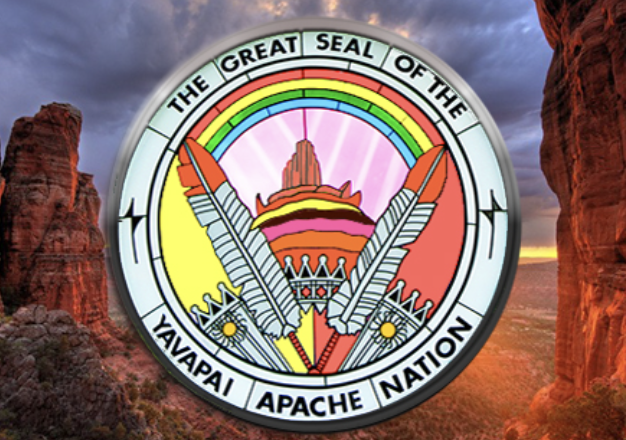
- Details
- By Native News Online Staff
The Yavapai-Apache Nation Tribal Council unanimously approved the Yavapai-Apache Nation Water Rights Settlement Agreement yesterday. This landmark agreement, negotiated over decades with Verde Valley communities and various stakeholders, promises to introduce new water supplies to the Verde Valley and resolve the Nation's longstanding water rights claims.
Chairwoman Tanya Lewis expressed the significance of this achievement, stating, "This is a critical milestone in ensuring the Yavapai-Apache Nation’s water future and protecting the Verde River. To settle, the Nation worked with our neighboring communities, the State of Arizona, the Salt River Project, and other stakeholders to attain agreement on a settlement that not only protects the Nation’s water future but also ensures the benefits of the settlement will help support a sustainable water future for the entire Verde Valley."
She added, "These negotiations were difficult and required compromise on all sides, but we are so glad to have achieved this long-overdue strategic goal of the Nation. At this moment in our history, we remember and honor the former Chairmen, Chairwomen, and Tribal Council Members who tirelessly advocated and worked for this day to come, and, for that, we are extremely grateful."
The settlement's approval is a significant step toward enabling Congress to introduce and enact legislation that will permanently resolve the Nation’s water rights claims in the Verde River Watershed. This legislation will also facilitate the development of critical infrastructure, bringing a renewable water resource to the Verde Valley.
A key component of the settlement involves constructing a pipeline over existing Forest Service roads from the C.C. Cragin Reservoir on the Mogollon Rim to the Verde Valley. This pipeline will transport water to the Nation for treatment in a state-of-the-art surface water drinking plant, subsequently distributing it to the Nation’s reservation communities. This new water source will allow the Nation to reduce future groundwater pumping, which is essential for preserving the Verde River's flow.
The agreement not only secures water for the Yavapai-Apache Nation but also ensures the continuation of significant cultural resources for the Nation's people, maintains the essential character of the Verde Valley as defined by the river, and promotes tourism and economic development throughout the region.
With this historic settlement, the Yavapai-Apache Nation has set a precedent for collaborative water resource management, demonstrating the power of negotiation and compromise in achieving sustainable solutions for future generations.
More Stories Like This
NCAI Passes Two Emergency Resolutions on Immigration Enforcement ActivitiesChickasaw Lighthorse Police Officer named Indian Country Law Enforcement Officer of the Year
Indian Gaming Association Rallies Broad Coalition Against Sports Event Contracts It Calls Illegal Threat to Tribal Sovereignty
Navajo Resources and Development Committee Issues Notice on Livestock Inspection Requirements
American Prairie, Tribal Coalition Files Protest Over Rescinded Grazing Rights
Help us defend tribal sovereignty.
At Native News Online, our mission is rooted in telling the stories that strengthen sovereignty and uplift Indigenous voices — not just at year’s end, but every single day.
Because of your generosity last year, we were able to keep our reporters on the ground in tribal communities, at national gatherings and in the halls of Congress — covering the issues that matter most to Indian Country: sovereignty, culture, education, health and economic opportunity.
That support sustained us through a tough year in 2025. Now, as we look to the year ahead, we need your help right now to ensure warrior journalism remains strong — reporting that defends tribal sovereignty, amplifies Native truth, and holds power accountable.
 The stakes couldn't be higher. Your support keeps Native voices heard, Native stories told and Native sovereignty defended.
The stakes couldn't be higher. Your support keeps Native voices heard, Native stories told and Native sovereignty defended.
Stand with Warrior Journalism today.
Levi Rickert (Potawatomi), Editor & Publisher


